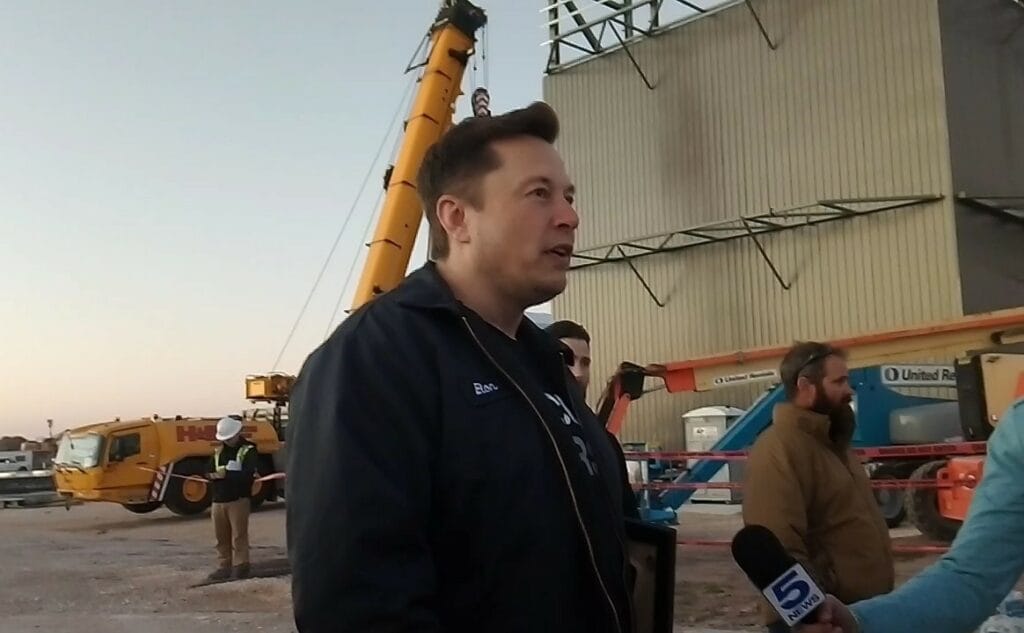Starlink Lights Up Ukraine, Russians Offered Crypto to Surrender, Broadband Playbook Released
Amid internet blackouts in Ukraine, Starlink is providing internet to keep Ukrainians connected during the invasion.
Benjamin Kahn

WASHINGTON, February 28, 2022 – SpaceX’s broadband satellite service Starlink sent receiver terminals to Ukraine Saturday, after regions in the country were experiencing internet blackouts amidst the ongoing Russian invasion.
Mykhailo Fedorov, Ukrainian vice prime minister and minister of digital transformation, tweeted directly at SpaceX CEO Elon Musk on Saturday imploring him “to provide Ukraine with Starlink stations and to address sane Russians to stand.”
Within 24 hours, Musk tweeted that “Starlink service is now active in Ukraine” and that additional terminals were “en route.”
Satellite broadband technology is often employed to service regions that are challenging to service due to inclement weather or geographic features that raise the cost of deployment and maintenance. Due to the volatile situation on the ground in Ukraine, satellite services are also more practical than fixed-wireless or fiber technologies.
The internet and social media have proven to be indispensable tools for Ukrainians on the front line. Because Ukraine’s executive leadership opted to remain in the country during the invasion, they communicate frequently with the Ukrainian people via social media, combating Russian propaganda and encouraging Ukrainians.
Ukraine finds new use for crypto
Ukrainian actress and television host Masha Efrosinina said in an Instagram post on Sunday that Russian soldiers are being offered five million rubles worth of cryptocurrency to surrender, courtesy of Ukraine’s Ministry of Defense and the “world IT community.”
In addition to the financial incentive, Efrosinina said that those who surrender will also be offered amnesty.
“As soon as soldiers with military equipment surrender, they receive money [and] amnesty – after the trial. But the main thing is that they can give up right now and get money right now,” Efrosinina wrote in her post.
The ruble hit its lowest value in its history on Monday, with one ruble being equivalent to a little less than a U.S. cent. This plunge occurred amidst the mounting economic sanctions that many countries are levying against the Russian government, Russian banks, and Russian companies, in response to Russia’s ongoing invasion of Ukraine.
Broadband infrastructure playbook released
The FBA and NTCA Rural Broadband Association jointly announced Monday the release of the Broadband Infrastructure Playbook.
The playbook, which was first announced in December, is designed to be an all-encompassing resource for state broadband offices, helping them make decisions about the best way to leverage federal funding from the Infrastructure, Investment and Jobs Act. The IIJA allocates $65 billion for broadband infrastructure across the country.
“Our goal with the Broadband Infrastructure Playbook is to provide a valuable resource to the states and territories by outlining key parts of the IIJA, sharing best practices from state broadband programs that have worked well in the past, and seeking to promote consistency and the best possible results out of this process,” NTCA CEO Shirley Bloomfield said in a press release. “If done right, the IIJA could provide a digital foundation for economic growth and innovation across the country through infrastructure that is built to last.”
The two organizations will be co-hosting a webinar to discuss the Playbook on March 4.









Member discussion